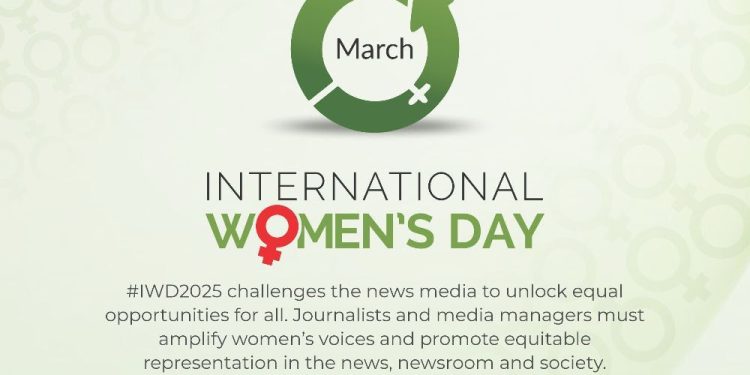As the world marks International Women’s Day 2025 with the theme “For All Women and Girls: Rights. Equality. Empowerment”, the Wole Soyinka Centre for Investigative Journalism (WSCIJ) is urging media organizations to prioritize gender-inclusive newsrooms as a cornerstone of accountability journalism.
Reaffirming its commitment to gender-inclusive newsrooms as a pillar of accountability journalism, the Executive Director/CEO of WSCIJ, Motunrayo Alaka, called on media houses to bridge gender gaps in leadership and news representation to ensure a diverse and equitable media landscape.
Findings from WSCIJ’s ‘Who Leads the Newsrooms and the News?’ report highlighted significant disparities across 111 surveyed media organisations, revealing that women hold only 25.7% of leadership positions, while men dominate at 74.3%.
The imbalance is even wider in print and online media, where female leadership representation stands at merely 4.6% and 5.5%, respectively.
According to the report, this leadership gap influences whose stories are told and how they are framed, as women remain underrepresented in news content, featuring in just 7.1% of news stories and making up only 12.1% of expert sources.
To address these imbalances, WSCIJ has engaged media houses through its House-to-House initiative, working with Daily Trust, Premium Times, The Nation, News Agency of Nigeria, and other prominent outlets.
Since launching in 2014, the Report Women! Programme has trained 537 journalists across Nigeria and Ghana, produced 86 fellows under the Female Reporters Leadership Programme, supported 138 newsroom leadership projects, and published 136 investigative stories on gender-related issues.
The organisation also launched the ‘Report Women! Experts’ Source Guide’ in October 2024, a database of over 500 female experts across eight sectors to ensure journalists have access to diverse female perspectives.
“International Women’s Day 2025 is a call to action for news media owners, publishers, managers, journalists, policymakers, civil society members and government to drive structural change towards accountability journalism through gender equality,” the statement noted.
WSCIJ urged media organisations to adopt intentional strategies to promote gender-balanced hiring, create safer workplaces, increase visibility of women in news coverage, and support training and mentorship for female journalists.
“At the WSCIJ, we remain steadfast in our mission to champion accountability journalism which includes equity between men and women in the practice and content of journalism. It is time to accelerate actions that lead to newsrooms that reinforce systemic equalities for girls and women,” Mrs Alaka, said.

